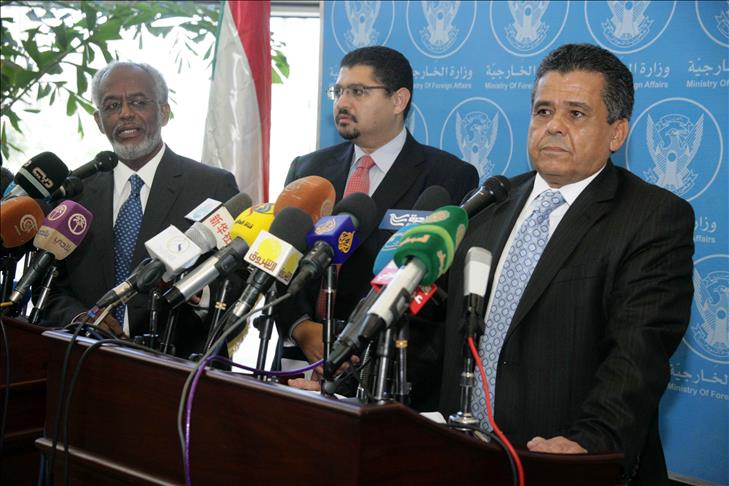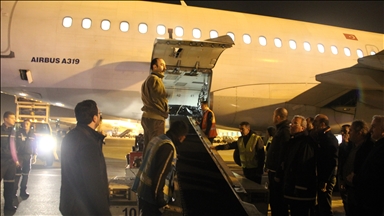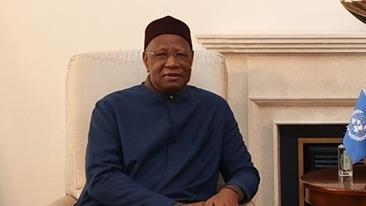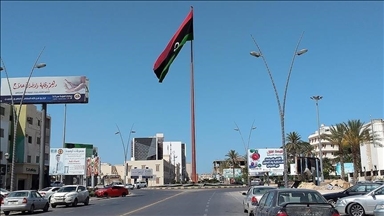No consensus in Libya Contact Group: Libyan FM
We have heard from African nations and Libyans on how a solution could [come about] to end the Libyan crisis, Dairi told

ADDIS ABABA
Libyan Foreign Minister Mohamed Ali Dairi said Wednesday that African and non-African representatives in the International Contact Group on Libya (ICG-L) had not reached a "consensus" on how to resolve the ongoing crisis in Libya.
"We have heard from African nations and Libyans on how a solution could [come about] to end the Libyan crisis," Dairi told a press conference following a meeting of the ICG-L.
"Libya looks for strong support for its political process, which is a prerequisite for adequately fighting terrorism," he added.
The top diplomat said Libya had requested international intervention to help improve the Libyan army's ability to fight "terrorists."
According to Dairi, the Libyan army enjoys the support of Arab nations.
"We are concerned that, if the situation does not improve, we may lose time. We need to address the security threats against Libyans in the shortest time possible," he said.
Dairi said his government was committed to finding a political solution, which, he said, would be a crucial step in terms of fighting terrorism.
The minister said that neighboring countries – including Mali, Algeria, Tunisia, Niger and Chad – had major concerns about deteriorating security in Libya.
He warned that the precarious political situation in Libya could spill over into neighboring states.
"We are aware of these possibilities," he said.
Haile Merkorios, the UN secretary-general's special envoy to the African Union, meanwhile, said that the ICG-L had reiterated its full support for efforts to find a solution to the crisis.
He said the contact group was entirely convinced that the solution must be political and not military in nature.
"The process of dialogue between all Libyans – facilitated by Libyans and the UN – is the only way to achieve consensus and peace," he said.
Libya has remained in a state of turmoil since the fall of the Muammar Gaddafi regime in 2011.
Since then, rival militias have frequently clashed in Libya's main cities, including capital Tripoli and the eastern city of Benghazi.
Stark political divisions have yielded two rival seats of government, each of which has its own institutions.
Vying for legislative authority are the internationally-recognized House of Representatives, which convenes in Tobruk, and the Islamist-led General National Congress, which – even though its mandate ended last year – continues to convene in capital Tripoli.
The two assemblies support two rival governments respectivelyheadquartered in the two cities.
Anadolu Agency website contains only a portion of the news stories offered to subscribers in the AA News Broadcasting System (HAS), and in summarized form. Please contact us for subscription options.




